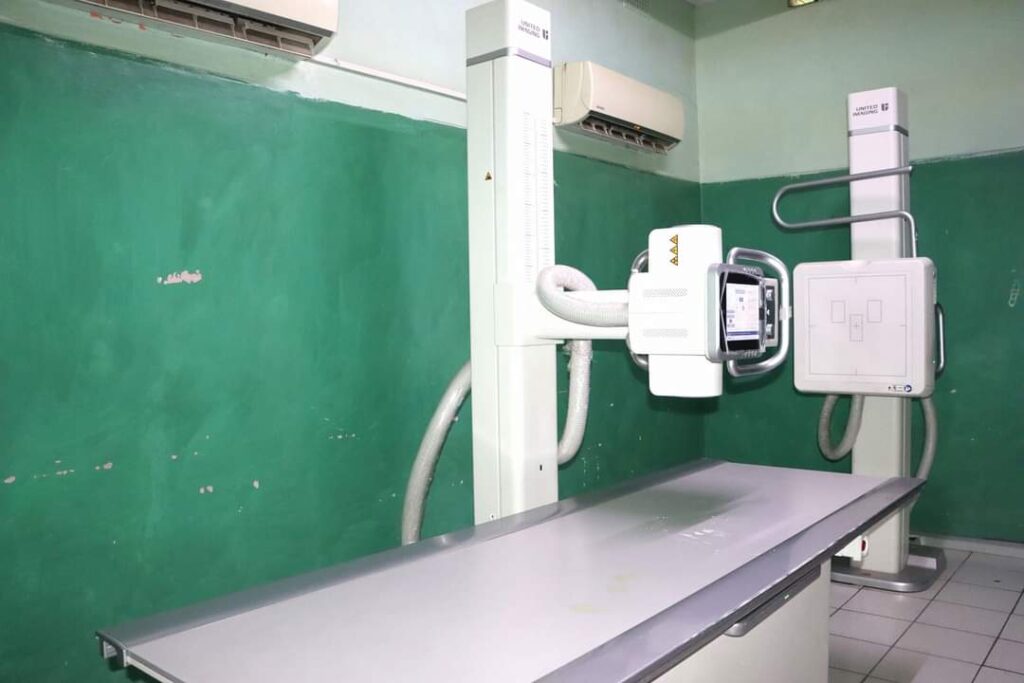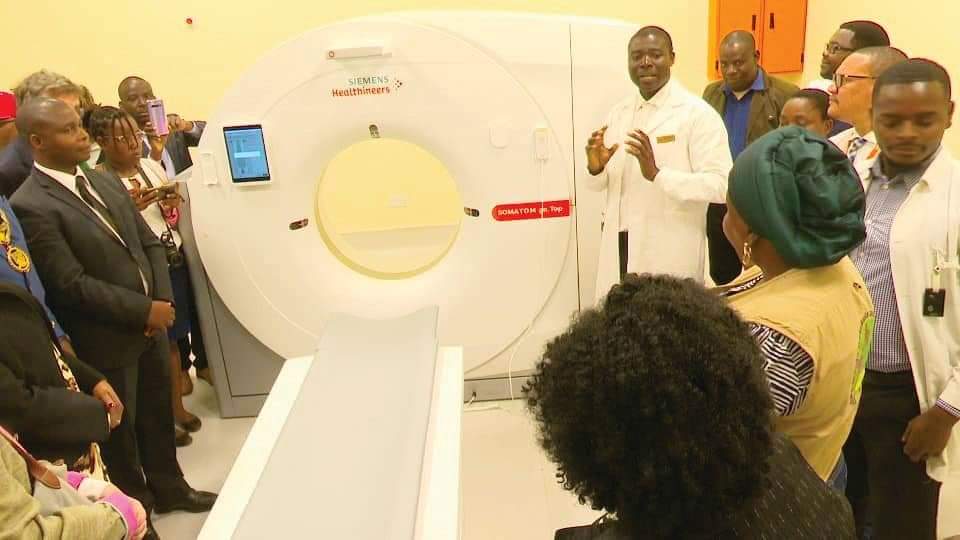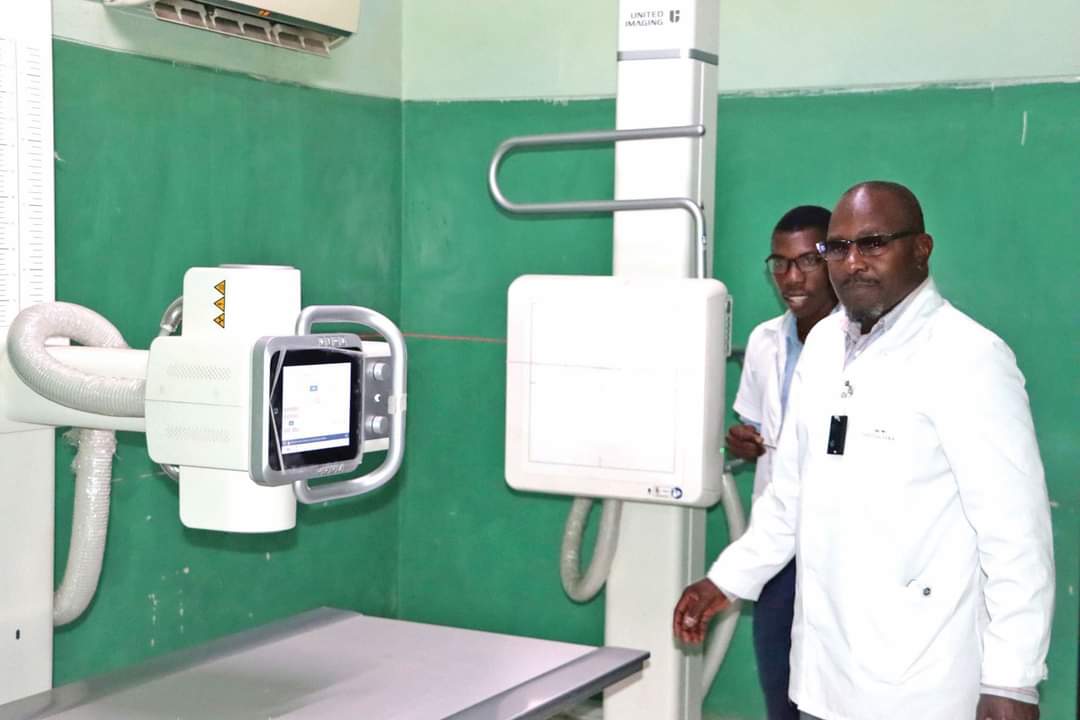
Zomba Central Hospital, located in the city of Zomba, has an extended catchment area comprising several district hospitals in Southern region OF Malawi.
For a long time, the country’s oldest referral hospital was being overwhelmed with clients in need of Computed Tomography (CT) scan services because most of the district hospitals do not have functioning machines hence refer their patients to Zomba Central Hospital.
While some patients seek such services from private hospitals where they paid huge sums of money, others could just resign to fate, as they could not afford the bills in private facilities, transport and upkeep to travel to Blantyre.
However, with the intervention of the Global Fund to procure through Government of Malawi a K2 billion CT scan, the pharma-grade incinerator, and the Infectious Disease Unit (IDU) Machine, patients have seen a tremendous change as far as healthcare provision is concerned.
During the commissioning ceremony at Zomba Central Hospital in July this year, the Minister of Health, Khumbize Kandodo Chiponda said the Ministry is determined to fight against diseases.
She said to achieve this enormous objective, it became imperative that Ministry of Health put in place the necessary infrastructure and equipment including the recruitment of health care workers to carry out this enormous task effectively.
“I feel privileged and honoured to inaugurate the CT scanning facility, the Medical Incineration Services Facility and the Infectious Disease Unit (IDU) at the Zomba Central Hospital (ZCH).

“The CT scan worth over K2 billion and this Pharma-grade incinerator installed at Kasungu District Hospital worth K453million, are courtesy of the support from the Global Fund,” Chiponda added.
She said the funds for these state-of-the-art machines were awarded to Malawi as part of the Covid-19 response mechanism grant to strengthen the health systems and make the health infrastructure robust and resilient to future pandemics.
“We are thrilled that the Eastern region community, where Zomba is, will now have enhanced access to care close to home. This state-of-the-art technology is a game-changer, eliminating the need for Eastern region residents to travel to other centres for CT scanning.
“The CT scanner is not just a machine; it is a promise of prompt and accurate diagnoses and will aid in timely treatments elevating the overall standard of care, it will reduce travel burdens for patients, and an enhanced capability for our healthcare professionals to provide the best care possible.
She said this marks a beacon of hope for those who may find themselves in need, reinforcing the idea that no matter where the people are, healthcare excellence should be within their reach.
A CT scan is a medical imaging test that uses X-rays to create cross-sectional images of the body. The patient lies on a table that slides into the CT scanner.
A narrow X-ray beam rotates around the patient’s body to detect health conditions and injuries like tumors, bone fractures and heart diseases.
Apart from Zomba Central Hospital, Global Fund has also donated Digital X-ray Machine to improve health care provision at Queen Elizabeth Central Hospital (QECH).
The hospital serves up to 230 patients per day and the inside body imaging device has improved the hospital’s service delivery by having consistent services since its commissioning in June this year.
QECH Chief Radiographer and Head of Radiography, George Mubisa, hailed the commissioning of the machine saying it came at the right time when the hospital was overwhelmed with patients from district hospitals.
“This is state-of-the-art technology which produces high quality images. It has the capability of Artificial Intelligence which can analyze the chest X-ray and interpret results of the analysis and give scores in relation to the probability of a patient having tuberculosis (TB),” Mubisa said.
Besides pointing out the suggestive TB, technology also gives other scores of long pathologies including cancer and pneumonia.
Mubisa said this makes it easier for doctors to determine if the patient should go for further examination to reduce the waiting period for the patient to commence treatment.
Nurse in charge of the TB ward at QECH, Ruth Mbweza, said the digital X-ray has made it easier to discuss doctor-patient issues especially for multi-drug-resistant patients.
She said before the purchasing of the digital X-ray, it was difficult for them to send the results texts but now results come on time thereby necessitating the putting of the patient on treatment.
“Some issues are detected early and we discuss how to help the patient. It now takes 20 to 30 minutes to have the results,” she said.
The QECH, is also expected to have a modern Magnetic Resonance Imaging (MRI) and a CT scanner, which will help patients to access the service within reach.
Currently, patients requiring such services, are referred to Lyons at Kamuzu Central Hospital in Lilongwe.
“We are only given a slot of seven patients per two weeks, yet we have more patients requiring such services.
“Demand is significantly high and we are not able to provide fullest potential services without the CT and MRI scanner. So their installation will really change service delivery for the better,” he said.




